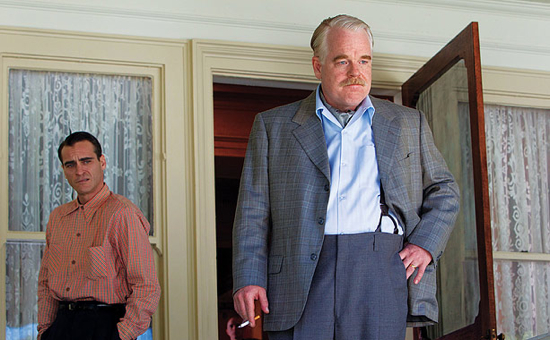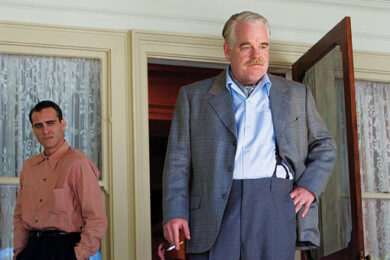Towards the end of World War II, the US Army produced a series of films observing and forecasting the psychological effects of combat. One of these was Let There Be Light, made by Hollywood legend John Huston, who was at that time serving with the Signal Corps. It documented wounded soldiers undergoing experimental interviews and hypnosis, with the hope of rehabilitation and a return to civilian life. Huston filmed these therapy sessions right up until the men were discharged from their medical attention. Many of them were suffering from psychosis or paralysis, and most all were affected by some level of severe anxiety disorder.
Now viewable online at the National Film Preservation Foundation, Let There Be Light was decades ahead of its time, showing innovative measures in dealing with and understanding what we today call post-traumatic stress disorder (PTSD). Deemed too controversial by the censors in 1946, it wasn’t screened for a public audience until 1980. Sadly, the need for understanding the trauma that soldiers have to endure was not a priority in the immediate aftermath of the Second World War (or indeed Vietnam).
Let There Be Light is the hidden backbone of the plot in Paul Thomas Anderson’s drama The Master. The documentary inspired elements of character development and narrative in the new movie, while Anderson took parts of his dialogue word-for-word from the original therapy sessions. The Master also reworks a few unused scenes from its writer-director’s previous feature There Will Be Blood (2007), which was itself greatly influenced by Huston’s 1948 classic The Treasure Of The Sierra Madre.
The Master is the story of erstwhile sailor Freddie Quell (Joaquin Phoenix), a loner stricken with PTSD, who struggles with a great deal of rage and alcoholism. Once back home, Freddie tries to fit into place in 1950s America, all the while processing his existence in a postwar climate.
Whether he’s jobbing as a department store photographer or attempting to make moonshine, Quell’s thirst for booze is prevalent, fuelling his violent and unpredictable behavior. He eventually puts the necessity of employment behind him, throws caution to the wind and becomes a drifter.

That’s when he meets Lancaster Dodd (Philip Seymour Hoffman), a character based on L Ron Hubbard, founder of the Church of Scientology. In The Master, Dodd is the leader of a movement called ‘The Cause’. Seeking some kind of solace, the troubled navy veteran gains interest and companionship from Dodd, and the pair set out on the road to spread their philosophy. However, afflicted by anger and drink dependency, Freddie grows disheartened and has to make the choice between going it alone or committing to ‘The Cause’ – an imperative decision with regards to his full acceptance.
The Master explores various themes: the alluring values of redemption, the struggles of rehabilitation and, at its core, self-destructive behaviour. This is a tale about commitments, false hopes and, moreover, individualism. But to gather all that you need to delve into the mood of the characters. The plot is almost clouded; invisible at times and, arguably, only accessible by way of knowing about the movie’s subject matter and development beforehand (hence the recommendation to watch Let There Be Light).

In the United States, there have been lots of negative reviews and many of them understandable. Here we have a heavyweight director, known as one of our most celebrated contemporary dramatists, whose output – although subtle – is enriched with substance. His new picture comes along – again with subtleties – and leaves very little to bite into, but much to ponder.
Anderson fans might want to try approaching this one without expectations or the need for resolve. The performances are explosive, and being shot on 70mm gives the film a majestic texture and grand dimension. It may well be that many people disliked The Master, Scientologists included, because they simply didn’t get it. Others have felt let down because they expected an epic or kaleidoscopic storyline. Nobody wants to admit that they don’t understand something from one of their favorite directors; it’s a tough reaction to blurt out.
At the end of the day, this movie is intended for those who seek nuance – for those intrigued by the neuropsychiatric conflict represented by Freddie Quell, and the horrors of war and what it does to men’s minds. It could be key to go back for a second viewing if first impressions fail you. Paul Thomas Anderson’s latest work is designed for those who like to peel back several layers. As such, it’s perhaps best to disregard what critics have said upon the film’s initial release. Without a doubt, The Master is one cinematic challenge.



